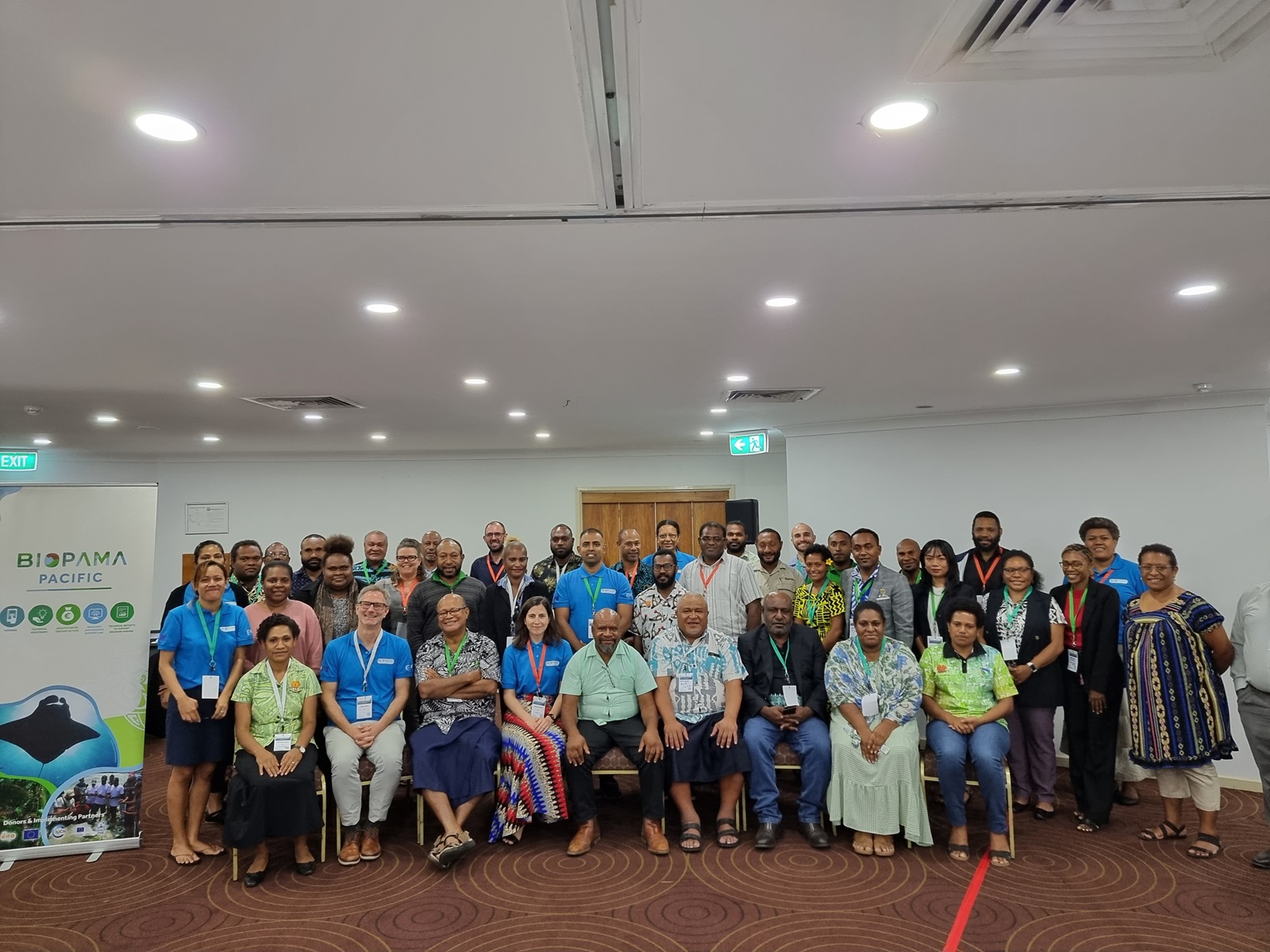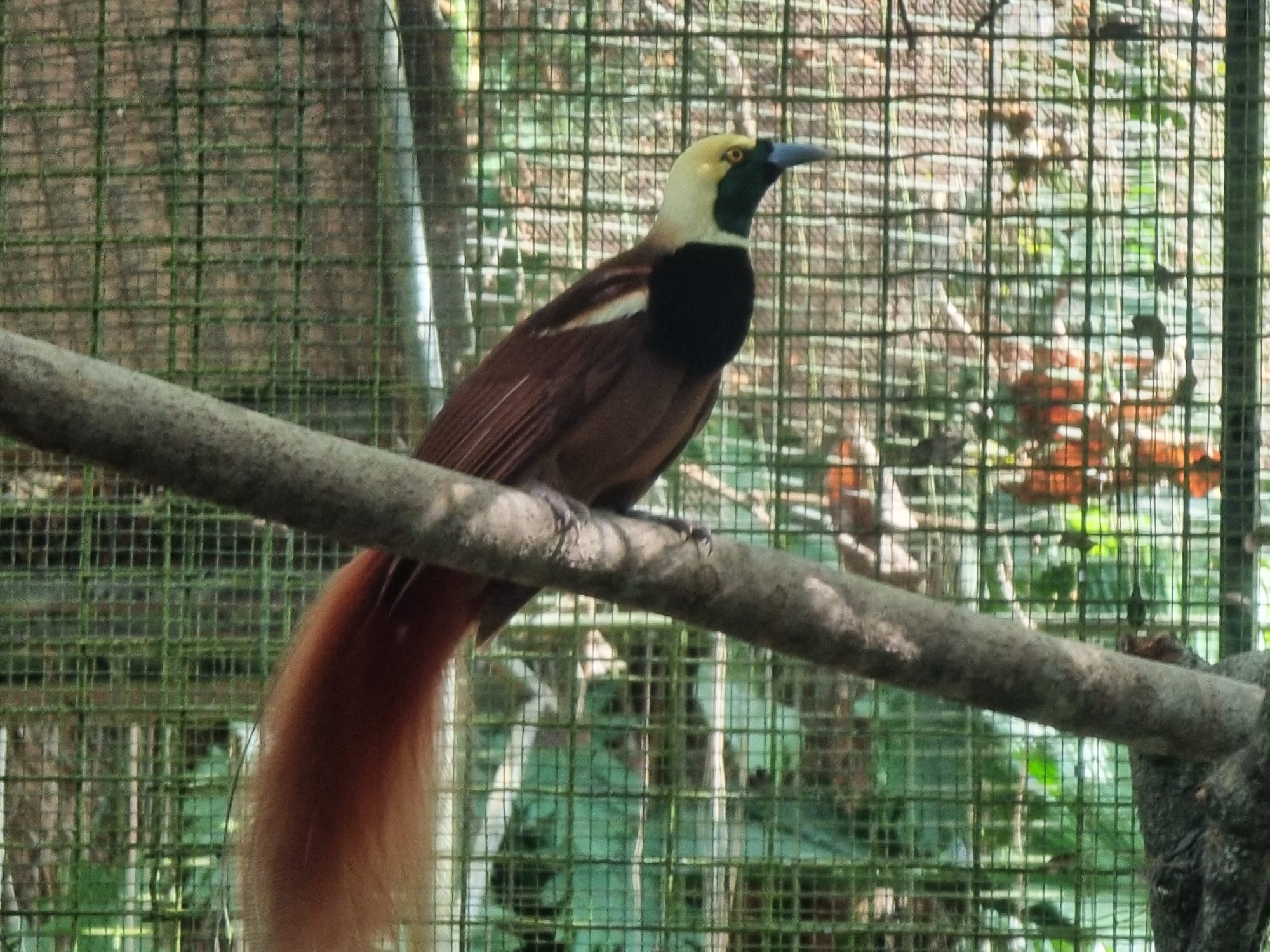Lessons learnt and best practice exchanges of Melanesian countries to advance the local and global conservation agenda
The Acting Deputy Managing Director for Conservation and Environment Protection Authority (CEPA) of Papua New Guinea, the national government agency at the forefront of coordinating environmental management in the nation, recently opened the commencement of a pivotal workshop aimed at enhancing capacity, sharing invaluable lessons learned, and fostering collaborative networks between key national and regional stakeholders.

The sub regional capacity building workshop of Melanesian countries, focussed on Protected and Conserved Areas, was held at the Holiday Inn & Suites in Port Moresby from 25 – 27 October 2023. Officiated by the Acting Deputy Managing Director of CEPA, Mr Michael Bongro, the workshop provided a platform for knowledge exchange and cooperation. In his opening speech, Mr Bongro reiterated the agency's unwavering commitment to environmental conservation and sustainable management. This event represents a significant milestone in the ongoing efforts to safeguard the natural resources of Papua New Guinea and the wider Melanesian region.
The workshop's primary focus revolves around three core objectives:
Building Capacity: In an era where environmental challenges are more pressing than ever, this workshop is designed to empower participants with the knowledge and tools necessary to tackle conservation and environmental management effectively. Through a series of insightful sessions and interactive discussions, attendees will have the opportunity to sharpen their skills and gain fresh insights into modern conservation techniques and experiences through BIOPAMA initiatives.
Sharing Lessons Learned: Drawing from the experiences of various stakeholders, the workshop encourages the sharing of valuable insights and practical knowledge. By learning from both successes and challenges, participants can develop a more robust approach to biodiversity conservation and environmental protection.
Enhancing Networks and Collaborations: One of the workshop's central goals is to foster connections between key national and regional stakeholders. By promoting collaboration between agencies and organizations, the event will serve as a catalyst for more effective conservation efforts throughout Melanesia and the broader Pacific region.
The workshop is made possible thanks to the generous funding from the European Union and the Organisation of African, Caribbean and Pacific States (OACPS), channelled through the BIOPAMA (Biodiversity and Protected Areas Management) Programme, implemented by the International Union for Conservation of Nature (IUCN) Oceania and its Partners, Joint Research Commission of the EU and the Secretariat of the Pacific Regional Environment Programme (SPREP). The EU's commitment to supporting sustainable environmental management and biodiversity conservation is vital for the success of this workshop and the continued protection of Melanesia's unique and diverse ecosystems.
Rahul Chand, the Programme Coordinator for Protected and Conserved Areas in the IUCN Oceania, emphasized that the workshop is a top-priority endeavour for BIOPAMA in 2023, specifically geared towards strengthening the capabilities of participating countries and translating these capabilities into tangible, on-the-ground impacts. Additionally, it seeks to harness support for the ongoing initiative, integrating it into the broader framework for Protected and Conserved Areas in the Pacific region.
Chand highlighted the diverse and experienced group of protected area practitioners gathered at the workshop, underlining their valuable contributions in the areas of biodiversity conservation, management effectiveness, and their expertise in tested and utilized tools. He noted that these contributions are instrumental in preparing for the Target 3 priorities outlined in the Convention for Biological Diversity.
Participants at the workshop include government agencies from various Melanesian countries, with representation from Vanuatu, Solomon Islands, Fiji, Papua New Guinea, and Timor Leste. Additionally, attendees include BIOPAMA grantees who have received funding to undertake activities related to biodiversity conservation in these countries. The diverse array of participants ensures a rich exchange of ideas and the potential for fruitful collaborations that transcend borders and boundaries.
The Acting Deputy Managing Director of CEPA, Mr Michael Bongro said that "This workshop is a testament to our collective commitment to preserving the natural treasures of Melanesia. Together, we can tackle the environmental challenges that lie ahead and create a sustainable future for our region. We extend our gratitude to the European Union and BIOPAMA for their support in making this event possible." Mr. Bongro further stressed the importance of ensuring that we coordinate our work better and work with unity, cooperation and collectively.
Speaking at the opening session, Roxana Bucioaca the Senior Programme Manager for BIOPAMA said that “equitable and effective area-based conservation is crucial for a fair world that values and conserves nature.” The IUCN Protected and Conserved Areas deploy standards, provide funding, tools and services to strengthen capacities and enable conditions for protected and conserved areas to achieve global challenges, from local to global. Ms. Bucioaca further added that “In line with the global targets, our approach focuses on “who counts” to protect ‘what counts” by 2030’. Through the Global BIOPAMA programme, in the Pacific we have achieved significant impact for protected and conserved areas, which benefit the nature, the people and our planet, while contributing to the global goals. We are committed to continuing this collaboration and strengthen the management of governance of Pacific protected and conserved areas, by using our standards, tools and the expertise of the Union.
As the workshop progresses, it is expected that regional priorities, knowledge, and partnerships will emerge, furthering the cause of biodiversity conservation and environmental protection in Melanesia.
A similar workshop for the Micronesian countries is planned for the first week of November 2023.
--------------------------
About CEPA: The Conservation and Environment Protection Authority (CEPA) of Papua New Guinea is the national government agency responsible for coordinating environmental management in the country. CEPA is dedicated to the protection and sustainable management of Papua New Guinea's diverse and unique natural resources.
About BIOPAMA: The Biodiversity and Protected Areas Management (BIOPAMA) programme aims to improve the long-term conservation and sustainable use of natural resources in African, Caribbean and Pacific (ACP) countries, in protected areas and surrounding communities. It is an initiative of the Organisation of African, Caribbean and Pacific States (OACPS) financed by the European Union’s 11th European Development Fund (EDF), jointly implemented by the International Union for Conservation of Nature (IUCN) and the Joint Research Centre of the European Commission (JRC). BIOPAMA provides tools for data and information management, services for improving the knowledge and capacity for protected area planning and decision making, and funding opportunities for specific site-based actions. www.biopama.org
About IUCN: IUCN is a membership Union composed of both government and civil society organisations. It harnesses the experience, resources and reach of its more than 1,400 Member organisations and the input of more than 15,000 experts. IUCN is the global authority on the status of the natural world and the measures needed to safeguard it. www.iucn.org

